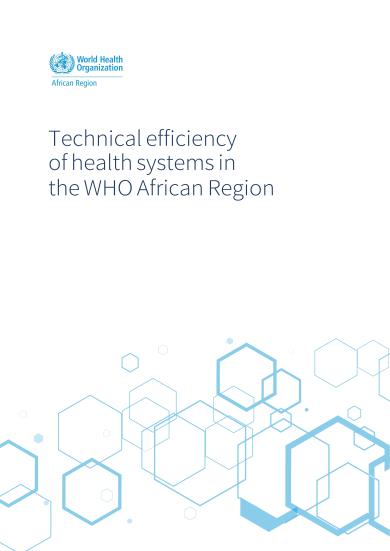
Technical efficiency of health systems in the WHO African Region
Achieving Universal health coverage (UHC) is a priority for both countries and global actors, as highlighted by the agenda of the United Nations (UN) Sustainable Development Goals (SDGs) and the World Health Organization’s (WHO) Thirteenth General Programme of Work (GPW13). Robust and adequately funded health systems are a prerequisite to building health security, attainment of global goals and UHC aspirations. However, the underfunding of health systems, fragmentation of health financing schemes, and inefficiency in resource allocation and use are persistent challenges.
The SDG agenda envisaged a significant role of domestic financing. African countries have however chronically underinvested in health with heavy reliance on direct out of pocket payments, donor funding for critical health programs and failed to meet previous African Union health financing commitments. The limited fiscal space has been a challenge for African countries and fronted as a justification for low investment in health. The COVID-19 pandemic with related consequences, specifically the projected shrinking of economies, is likely to further negatively impact investment in health. The health financing discourse has highlighted improving efficiency in resource generation and utilization as one of the plausible solutions to create fiscal space for health.
Two important aspects of assessing health system efficiency are technical and allocative efficiency measurement. Whereas allocative efficiency involves allocating resources to provide an optimal mix of services and goods in a way that maximizes overall benefits to society, technical efficiency is concerned with the best use of the existing set of resources (inputs) to achieve maximum outputs [1]. There is, therefore, the need for health leaders to improve upon technical efficiency to be able to provide more healthcare services within the limitation of their resources.


